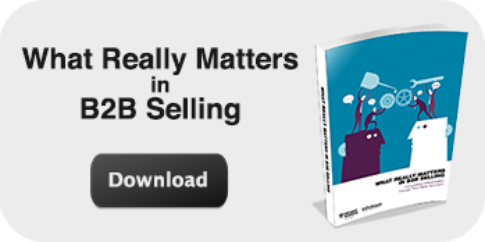 Have you ever been frustrated at having your time wasted? The truth is there are customers out there that feel that they can waste your time and they don't seem to care about doing it.
Have you ever been frustrated at having your time wasted? The truth is there are customers out there that feel that they can waste your time and they don't seem to care about doing it.
They will exploit your commitment to doing a great job and use it against you. We know, because like most of you, we have wasted time replying to an RFP that was not what we were led to believe.
A few minutes reading this could save you a lot of time.
You can’t win them all
We believe in competitive pitches to win business – of course we do. And if there are winners there have to be losers – we accept that. What we don’t believe in is taking part in a competitive pitch we cannot possibly win because the customer has rigged the evaluation in favour of one supplier.
I will tell you about a pitch we wasted time on and give you a few tips on how to avoid the same mistake.
The passionate Infoteam consultant and his opportunity
My colleague is very enthusiastic and very committed to delivering great new business. This was potentially a very big deal for him, to implement a Sales transformation across a large state-owned defence supplier including around 10 companies. And very importantly, he thought he had a Coach within the company who was very positive. Unfortunately, my colleague didn’t see the risks.
The misleading Coach
A Coach, or sponsor, is a person within the customer organisation who can help you get the information you need to win the business. Look out for my blog on how to identify and develop a Coach. My colleague had a Coach within the company who when asked directly if our proposal would be given full and fair consideration assured us it would. But crucially, the Coach didn’t do anything to enable us to follow our Sales Process and essentially he misled us. Why? I will come on to that later.
How it went
With the encouragement of the “Coach” we went ahead. The RFP was 120 pages long and it took 3 of us 3 weekends to complete – about 150 hours work. We submitted it and waited. And waited. Eventually we heard we had not been successful so my colleague contacted his Coach for feedback and discovered some very interesting things.
The work had gone to a rival who, it turned out, was already working with one of the companies in the group. When the HR team who were running the process looked through the proposals they decided they were not qualified to judge the solutions so they passed them on to a group of managers. The same managers who were already working with the company who won.
When we saw the scoring, the winning company was scored 10/10 for everything while the next best runner up was only scored 6 or 7. There was never any question who was going to get the business.
We also discovered that several other companies who we think of as being in the same league as us turned down the chance to pitch, presumably because they had carefully qualified the opportunity and seen it was not viable.
So why had our Coach kept insisting we were in with a good chance?
A flawed process
Our Coach had to keep us believing we were in with a chance of winning or we would have declined to do all the work to submit a proposal and that would have deeply undermined the evaluation. The instructions from procurement were that at least 9 competitive offers had to be submitted. That’s why our Coach did everything he could to keep us in the running.
This is becoming a real problem for customers who are running a competitive evaluation and for the companies pitching. The potential customer produces an RFP that tries to define the solution and steers it towards a particular supplier. The wise competitors spot this (though admittedly not us in this case) and decline to respond leaving the customer with too few companies pitching or only second-rate suppliers. The customer is not exposed to potentially better solutions so internal stakeholders are misled.
And what about the companies who pitch? In this case 9 companies responded to the RFP and if they all spent as long as us that amounts to 32 weeks of wasted time that someone has to pay for. Not to mention all the weekends that could have been spent with family and friends.
Am I just a sore loser?
Of course I don’t like to lose. Who does? But there’s a big difference between losing a fair contest and having your time wasted by a customer who has absolutely no intention of working with you.
So you (and we) need to qualify RFPs carefully to avoid wasting time and have the courage to say “no”. Customers who are running unfair processes will then find it increasingly difficult to find people to take part. Then maybe we can go back to genuinely competitive pitches where a few carefully selected companies can offer innovative solutions that are judged on their true merit.
Questions you should ask yourself
-
Do you thoroughly qualify RFPs before you respond to them?
-
How much time do you waste in pursuing no-hope opportunities?
-
Wouldn’t you rather spend your weekends relaxing?
Enjoyed this blogpost? Download our eBook:


